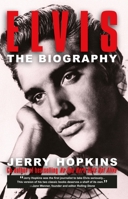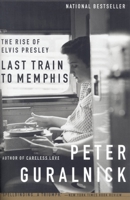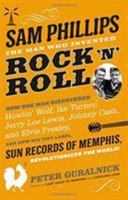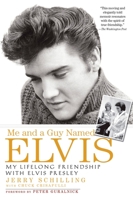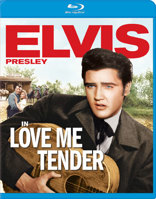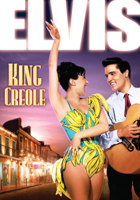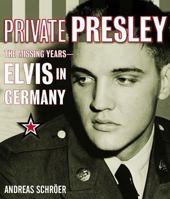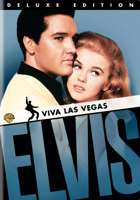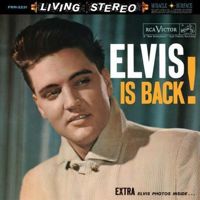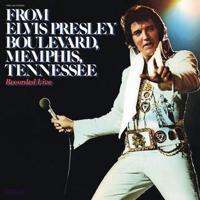7 Little Known Facts About Elvis Presley
By Ashly Moore Sheldon • January 08, 2021
The King of Rock 'n' Roll would have turned eighty-five today! His untimely death when he was only forty-two left the music world bereft. Regarded as one of the most significant cultural icons of the twentieth century, he pioneered the style of rockabilly, an uptempo fusion of country and R&B—a precursor to modern rock. Here we get to know the late, great music man with seven little known facts about him.
1. He was a twin.
Fingerprints are like values—you leave them all over everything you do.
Elvis Aaron Presley was born on January 8, 1935, in a two-room shotgun house built by his father. His identical twin, born thirty minutes before him, was stillborn. His mother, Gladys, unable to have any more children, poured all of her energy into raising her only son. The two were extremely close, their relationship explored in Elvis and Gladys by Elaine Dundy.
Presley's father, Vernon, worked unsteadily and the family was quite poor. In 1938, he was sentenced to three years in prison for forging a four-dollar check and Elvis and Gladys had to move in with relatives.
The Presley family attended an Assembly of God church, which is where The King first became interested in music. Elvis: A Biography by Jerry Hopkins explores the singer's early life.
2. His early musical prowess was decidedly lackluster.
I never expected to be anybody important.
Early in Presley's life, there is scant evidence of his monumental talent. When he was ten years old, he entered a local singing competition and received fifth place. For his birthday a few months later, his mother bought him his first guitar. As the story goes, Presley was disappointed by the gift, having hoped to get a rifle instead. Nonetheless, he began bringing it to school every day where he was teased by other kids for being a loner and playing "hillbilly music." He later failed a high school music class.
After graduating high school, he took a job as a truck driver, but continued to pursue music. He was rejected when he tried out for a gospel quartet, The Songfellows. After an audition with a bandleader he was told that he'd better stick with truck driving, "because you're never going to make it as a singer." But Presley had the last laugh, recording his first hit single less than a year later in July of 1954. For the story of Elvis's meteoric rise to success read Peter Guralnick's excellent Last Train to Memphis.
3. His first hit almost didn't happen.
Ambition is a dream with a V8 engine.
Starting in 1953, Presley paid for studio time to record a few songs at Sun Records, but nothing came of it. But Sun Boss Sam Phillips saw something in the young singer, so in 1954, he enlisted him to come in and record a new ballad he'd picked up. The session, which went late into the night, seemed like it was going nowhere. But just as Phillips was thinking of giving up, Elvis launched into a 1946 blues number, Arthur Crudup's "That's Alright" and Phillips started recording. This was the sound he'd been looking for. Sam Phillips: The Man Who Invented Rock 'n' Roll explores the visionary music producer's role in shaping the industry and discovering such influential stars as Presley, Johnny Cash, Ike Turner, and others.
Or for a more intimate look at Presley's life, try Me and a Guy Named Elvis, by Jerry Schilling. The two met when The King was nineteen and remained lifelong friends.
4. At the height of his fame, he joined the army.
If you let your head get too big, it'll break your neck.
Presley's brooding good looks and flashy showmanship, read swiveling hips, led naturally to the screen. By 1956, he made his movie debut, Love Me Tender, all the while churning out hit records. Over the next several years, his star continued to rise and when he received a draft notice at the end of 1957, he was granted a brief deferment to finish his work on the film, King Creole.
Upon entering the army in March of 1958, Presley insisted he didn't want any special treatment, saying, "The army can do anything it wants with me." While in basic training, Presley's mother was diagnosed with hepatitis and her condition worsened rapidly. Presley was given leave to visit her and was with her when she died. Returning to the army after her death, Presley was deployed to Germany for his service. You can read about his time there in Private Presley: The Missing Years by Andreas Schröer.
5. He met his wife, Priscilla, when she was only fourteen years old.
Sad thing is, you can still love someone and be wrong for them.
While in Germany, Presley met fourteen-year-old Priscilla Beaulieu. Though ten years apart in age, he was taken with her, saying that she reminded him of his dearly departed mother. He also saw her age as an advantage telling a friend that she was "young enough that I can train her any way I want."
Indeed during their seven-and-a-half year courtship and into their 1967 marriage, Presley worked to mold Priscilla into his ideal woman. At first this seemed amenable to Priscilla, but as she got older, she began to assert herself and the relationship became strained. After the birth of their daughter, Lisa Marie, the marriage floundered. Despite divorcing him in 1973, Priscilla called Elvis the "love of her life." Elvis and Me tells her story of their relationship.
6. Sin City took a while to warm up to him.
Man, I really like Vegas.
Considering the fact that Elvis impersonators are ubiquitous in Las Vegas, it may surprise many to know that initially, Elvis was not a welcome act there. In 1956, when he first appeared in a Vegas show, he left the middle-aged casino patrons unimpressed. A reviewer wrote, "For the teenagers, he's a whiz, but for the average Vegas spender, a fizz."
But Presley loved Vegas, returning there whenever he could, whether to party, to film a movie, or to get married. So in 1969, in the throes of a make-or-break comeback attempt, he took the stage for an epic performance that not only revitalized his career, it transformed the Vegas entertainment scene forever. To get the full story about how Las Vegas saved Elvis and vice versa, read Elvis in Vegas by Richard Zoglin.
7. He didn't write any of his songs.
I don't know anything about music. In my line you don't have to.
With his distinctive style and star-making swagger, Presley excelled at making a song his own, even though he didn't write any of the more than 600 songs he recorded. Perhaps this explains the wide stylistic range of his hits, from the rockabilly-infused "Mystery Train" by Junior Parker to Otis Blackwell's pop gem "All Shook Up" to blues classic "Heartbreak Hotel" by Tommy Durden and Mae Boren Axton. Presley immortalized these songs and many songwriters clamored to write for him. At this point, you may be wishing you had an album or two to throw on the old turntable and we've got you covered with these gems on vinyl:
- Elvis: 30 #1 Hits offers just that. A career-spanning review of his top hits, in both the US and the UK.
- 1960's Elvis is Back chronicles Presley's return after military service. This album marks a significant creative leap in his career.
- Drawing from his gospel roots, The King cemented a massive comeback with From Elvis Presley Boulevard, Memphis Tennessee in 1969.
Regardless of the challenges he faced or the sadness of his untimely death, there's no denying that Presley left a legacy that few performers have ever matched. He changed music forever. Long live The King!
You can follow us on Facebook, Twitter, and Instagram for daily book recommendations, literary tidbits, and more.












